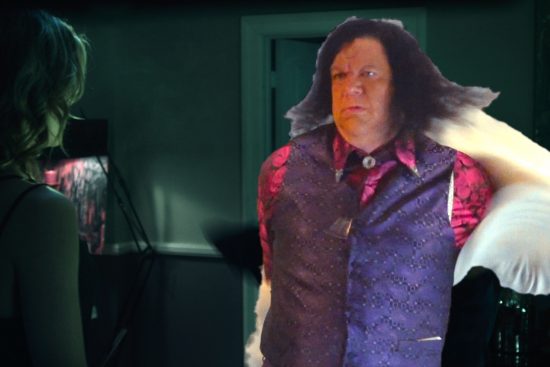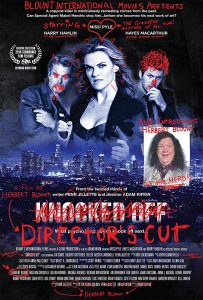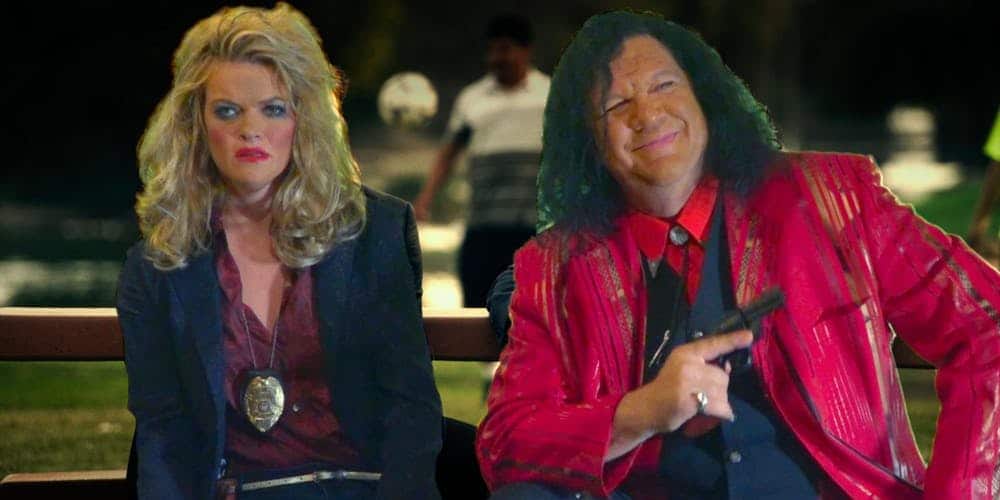 Horror has always been a heavily self-referential genre. It’s often suggested that Scream started this trend, but that’s patently untrue; go back decades and you can find no shortage of horror movies which openly point out and play with genre conventions, as well as directly addressing the audience in a fourth-wall breaking manner. The digital age has pushed this ever further, with the over-abundance of camcorder and or/phone-shot found footage movies – but (outside of Inside No. 9’s 2016 Christmas Special) we haven’t seen much horror that plays with the uniquely modern motif of the director’s commentary track, the reinsertion of previously deleted footage, or in some instances the addition of all-new footage shot specifically for a new edition of the movie.
Horror has always been a heavily self-referential genre. It’s often suggested that Scream started this trend, but that’s patently untrue; go back decades and you can find no shortage of horror movies which openly point out and play with genre conventions, as well as directly addressing the audience in a fourth-wall breaking manner. The digital age has pushed this ever further, with the over-abundance of camcorder and or/phone-shot found footage movies – but (outside of Inside No. 9’s 2016 Christmas Special) we haven’t seen much horror that plays with the uniquely modern motif of the director’s commentary track, the reinsertion of previously deleted footage, or in some instances the addition of all-new footage shot specifically for a new edition of the movie.
This is the main schtick of Director’s Cut, a comparatively rare venture into screenwriting and acting from Penn Jillette, one half of esteemed stage magic duo Penn and Teller. Directed by Adam Rifkin, Director’s Cut is on the one hand a pastiche of the glossy, gore-strewn police procedural shockers of which we saw all too many in the Saw years; but at the same time, it’s a sinister take on that all-too real menace, the obsessive fan who can no longer tell fact from fiction. On top of all that, it’s a wry commentary on how crowd-sourcing has impacted contemporary filmmaking, and not always in a good way… but, just to make it all the more head-scratchingly meta, Director’s Cut was itself funded by crowd-sourcing. It’s an intriguing and promising concept, no doubt about it; but while it certainly isn’t low on self-reflective smarts, it’s a little lacking when it comes to laughs and scares.

As the film begins, it appears we’re sitting down to a standard Hollywood torture porn serial killer flick called Knocked Off, in which the murderer’s crimes are modelled on those of the most infamous real-life killers of them all. We get commentary from a man named Herbert Blount (Jillette), who claims to be the film’s true director, and promises that what we’re about to see is his never-before-seen director’s cut. However, it quickly becomes clear that Blount doesn’t seem to know what he’s talking about most of the time, and that his primary interest in the film is its lead actress, Missi Pyle (herself), who stars as an FBI agent assigned to help LAPD detectives Harry Hamlin and Hayes MacArthur crack the case. As snippets of deleted and behind the scenes footage are spliced into the movie, it doesn’t take long to twig that Blount is no filmmaker; he’s an obsessive stalker, albeit one who has found a way to legitimise being close to his target by purchasing an executive producer credit via Knocked Off’s crowdsourcing campaign, thereby granting him official access to the set. Of course, as his ‘behind the scenes’ footage shows us, Blount’s efforts to get closer to Pyle do not go over well with the actress – and so, he decides to take a more direct approach, abducting the actress during production and forcing her to shoot new scenes with him, in which he becomes the new hero.
It’s a neat idea, for sure, and it’s pretty effective for a while, particularly in the early half of the film, in which Jillette/Blount’s commentary is mostly just thinly-veiled jabs at Hollywood, and in particular the film’s own cast (my personal favourite: “This is Gilbert Gottfried. He was in Problem Child 2”). In presenting Blount as someone who considers himself a well-meaning fan and genuinely doesn’t realise that he’s crossing a line, it’s a dark and eerily plausible reflection on the current state of fandom. Jillette is well-cast here: he may give the role a relatively non-threatening, oafish demeanour, yet there’s no avoiding the fact that he’s very imposing physically, and could easily turn on a dime from friendly clown to terrifying, evil clown. Unfortunately, Director’s Cut never quite takes this to its full potential. After a fairly sinister build-up, it feels like the final act is holding back from letting things get too dark and nasty. On top of which, it’s never quite as funny as one would hope either; it raises plenty of smirks, but there are no real gut-busters in store.
None of this is to suggest Director’s Cut doesn’t warrant a look. It’s an entertaining film for sure, and is likely to be held up in years to come as one of the better horror films to directly deal with filmmaking and fandom. Unfortunately, it falls a fair bit short of the great horror comedy we might have hoped for.
Director’s Cut is available on demand here.
